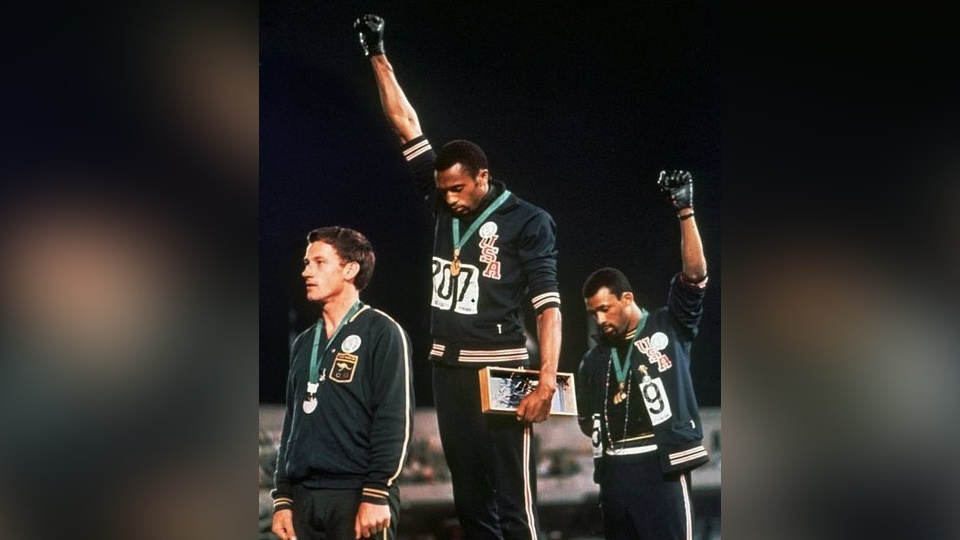John Carlos and Tommie Smith will be inducted into the U.S. Olympic Hall of Fame more than 50 years after they were shunned for protesting at the 1968 games.
The U.S. Olympic and Paralympic Committee announced its intentions in late September, according to The Washington Post. The former runners will be a part of the first hall of fame class since 2012.
During the 1968 Olympics in Mexico City, Smith broke a world record in the 200-meter race while Carlos finished third. When it was time for them to receive their medals, the men put on black gloves, removed their shoes and did the Black Power salute. They were protesting a slew of issues including a lack of Black coaches, the exclusion of South Africa and Rhodesia in the competition and racist and anti-Semitic sentiments from Avery Brundage, who was president of the International Olympic Committee at the time.
“I have no regrets. The people who have regrets are the ones who were there in 1968 and did nothing.” —John Carlos pic.twitter.com/VwMKbiUAnA
— Haymarket Books (@haymarketbooks) June 5, 2019
Initially, the Olympic Committee decided against penalizing Carlos and Smith but changed its mind because they were afraid of copycats.
"The Olympic Games is not a place for demonstrations of any type," former U.S. Olympic Committee President Doug Roby wrote in a letter. "If we had let the incident regarding Tommie Smith and John Carlos pass without some sort of action being taken, we might have had some demonstrations of the Czechs against the Soviets, Israel against the Arab countries, South Korea against North Korea, or Cuba against the United States, to mention but a few, and our ceremonies would have been a farce."
Smith and Carlos were suspended and ordered to leave Mexico within 48 hours, according to The San Francisco Chronicle. In the years that followed, the duo dealt with unemployment and death threats. Carlos admitted the backlash was partially responsible for his wife's suicide in 1977.
Despite the hardships, they regret nothing.
"I went up there as a dignified Black man and said: 'What's going on is wrong,'" Carlos told Smithsonian Magazine in 2008. Smith said the demonstration "was a cry for freedom and for human rights. We had to be seen because we couldn't be heard."
Their inclusion in the Olympic Hall of Fame validates their decision.
"It sends the message that maybe we had to go back in time and make some conscious decisions about whether we were right or wrong," Carlos told USA Today. "They've come to the conclusion that, 'Hey man, we were wrong. We were off base in terms of humanity relative to the human rights era.'"
Other Hall of Fame inductees are WNBA legend Lisa Leslie, gymnast Nastia Liukin, speedskater Apolo Anton Ohno and beach volleyball player Misty May-Treanor.
The induction ceremony will take place on November 1.

